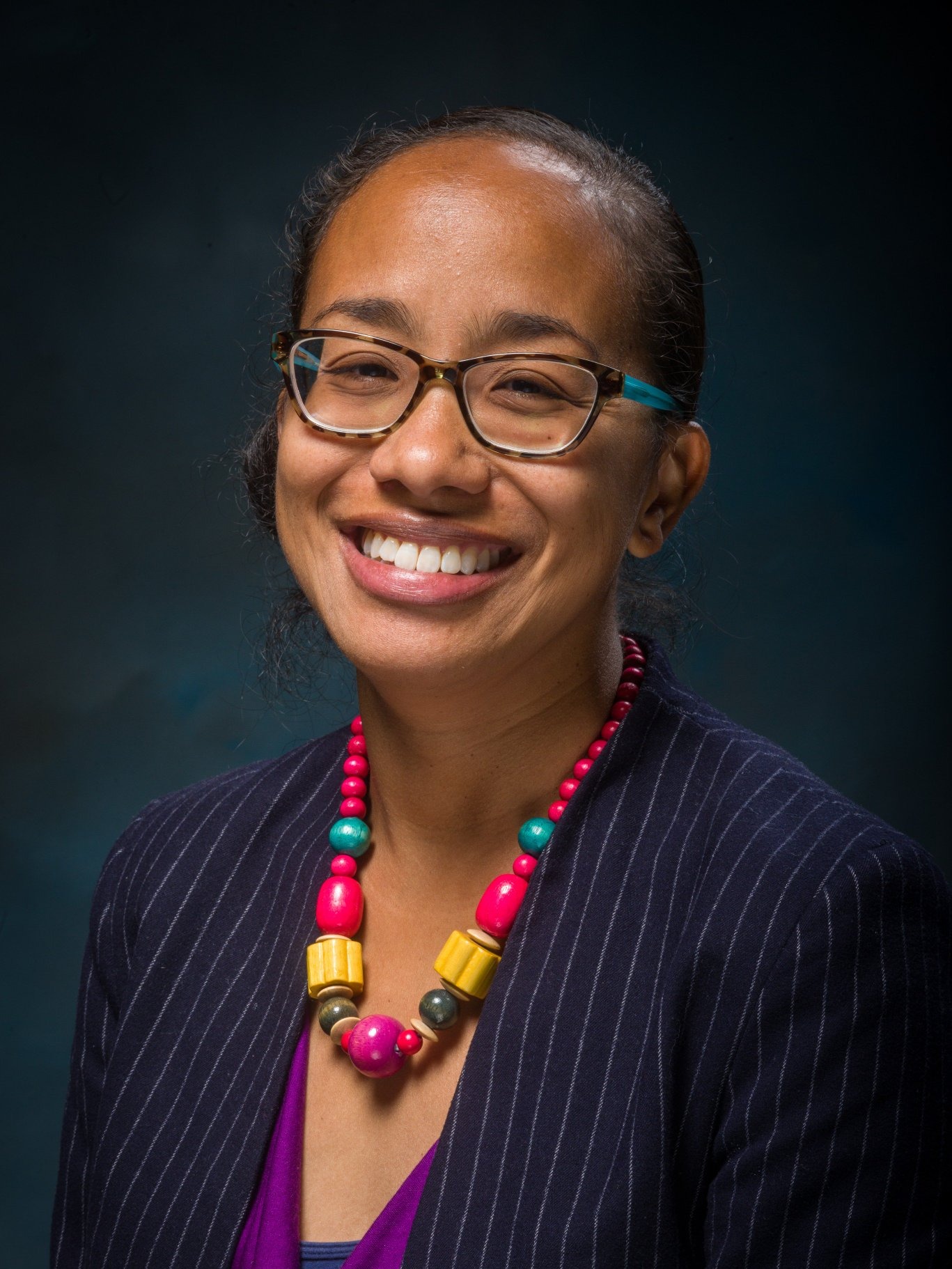Wendy Thompson Taiwo
 |
Associate Professor
Keywords |
Current Research Activities
I am current revising my manuscript project on the Second Great Migration, racial performance, and blackness and how they contribute to an understanding of belonging in the constantly changing and contested landscape of the Bay Area. I argue that when black migrants did not have direct access to “stages,” they often used public/outdoor and private/indoor sites and spaces to engage in the act of “staging” identity, belonging, class, and resistance. Additionally, I have submitted my first collection of poetry that reflects my own personal experience growing up black and Chinese in the Bay Area. Some of the poems included are slated for publication in various poetry journals.
Research Connections to Current Events
My research project highlights the current issues around housing scarcity, gentrification, black displacement, and changing demographics in the Bay Area. Titled, Chasing the Sun: Staging Life, Belonging and Displacement in the Black Bay Area, my manuscript argues that African American reverse migration and displacement from California and elsewhere are part of the late stage of the Great Migration, a movement that saw black people move to more politically, economically, and socially hospitable climates, leaving behind structures of anti-black state-sanctioned violence and white supremacist policies and practices. Using the the concept of the stage and the notion of staging as a theoretical device, I argue that time (a period of development) and staging (actors, props, set, performance) are essential devices for understanding and situating black life in the Bay Area, a landscape where racial, economic, and political histories shape national discourse on liberal politics, progressive action, race, technology, housing, and access. Relying on mixed methods from the disciplines and fields of cultural studies, critical ethnic studies, material culture studies, visual culture studies, and performance studies, I pick specific acts and practices, informal performance pieces, and impromptu scenes to gain a unique, complex view of black life in a region that is both depicted as a multicultural haven and experienced as a site of antiblack terror. These performances, alongside material objects, spaces, and symbolic gestures, allow us to see black southerners’ arrival and their descendants’ attempts at placemaking, cultural expression, political mobilization, and resistance. They also reveal the possibilities and limitations of freedom in a region that defines itself as multicultural, racially progressive, and exceptional. These overarching themes are the connecting threads that tie together my scholarly and creative work, the latter of which explores regional, racial, and gender identity, family history, black and Asian cultural practices, and aspirational mobility.
Personal Connections to Research
Questions about my own family history tied to the Second Great Migration, racialized property ownership and loss, suburban movement, generational passing, black community disappearance, and black collective memory retention have all shaped my current research agenda which includes a monograph currently under development and an assortment of articles, essays, and poems. With much of my scholarly work being situated in the field of Black California and African American West Coast studies, and my creative work being grounded in my own multiracial Bay Area experiences, I have found richness in linking my academic and creative pursuits, turning to the revolutionary and feminist praxis of seeing the personal as political, and the black feminist praxis of incorporating both in one’s critical analysis and scholarship production. In this spirit, I have consulted relatives, conducted oral histories, and collected archival family photographs which have deepened my research and made clear how individual family stories are a major foundation to larger historical events. In addition, I was inspired to begin a new research project after teaching a cross-listed AFAM/ENVS course over several semesters. AFAM/ENVS 151: Race, Class and the Environment focuses on themes of race, power, capital accumulation, and the environment, all of which have led me to begin asking questions about the relationship between the black experience and nature. I expect to produce a collection of keywords highlighting people, events, objects, scenes, movements, and places that evoke a black connection to the natural world in a multimedia text.